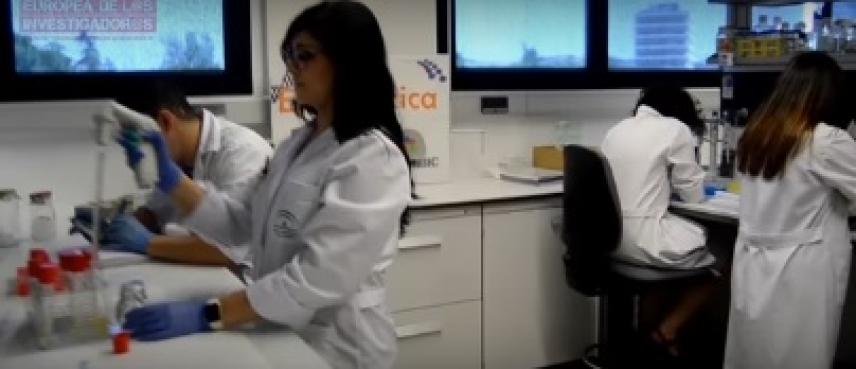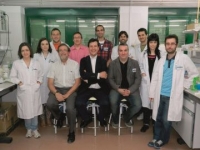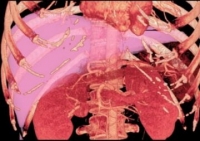Buscan el camino para borrar alteraciones en el ADN de las células tumorales
Escrito porLa complejidad del interior de las células parece no tener límites. Y sin embargo, cada día, la comunidad científica logra dar un paso más. Desde que a mediados del siglo XIX se lograra por primera vez aislar el ADN, la Biología Molecular y la Genética no han parado de ofrecer nuevos datos que permiten ir entendiendo los procesos que ocurren en el núcleo de las células y que determinan la vida. Hace décadas que los investigadores fijaron su atención en los daños que sufre el ADN y cómo se las apaña la célula para repararlos.
El IMIBIC realiza más de 20 estudios para mejorar la calidad de vida de los pacientes diabéticos
Escrito porEl presidente de la Federación Española de Diabetes, Andoni Lorenzo, visita el instituto, donde ha conocido la actividad investigadora que se desarrolla
El Grupo Español de Tumores Endocrinos financia un trabajo del Instituto Maimónides
Escrito porEl equipo investigador liderado por Justo Castaño obtiene una beca de 20.000 euros para investigar los marcadores moleculares que permitan el diagnóstico y el tratamiento de tumores neuroendocrinos
A mathematical method to better allocate donated livers in transplantations
Escrito porSINC agency
Researchers at the University of Córdoba have developed a system that measures compatibility between donors and severely ill recipients in liver transplants. This mathematical method integrates experience from nearly 1,500 registered donations in transplant units in Spain and the UK.
UCO SCIENCE. Two anti-cancer components found in Ambrosia arborescens
Escrito porResearchers study the interaction between nervous system and testosterone in C. elegans
Escrito porFundación Descubre
A team of scientists from the city of Cordoba has studied the effect of testosterone on behavior of the worm Caenorhabditis elegans, with the aim to analyze the interaction between the male hormone and the nervous system at the molecular level. Previous research established a correlation between autistic behavior traits and level of exposure to testosterone during prenatal development. The research study, entitled “Epigenetic effect of testosterone in the behavior of C. elegans. A clue to explain androgen-dependent autistic traits?” has been published in the journal Frontiers in Cellular Neuroscience.






